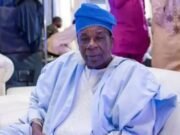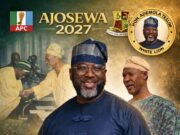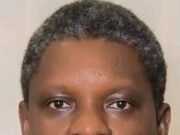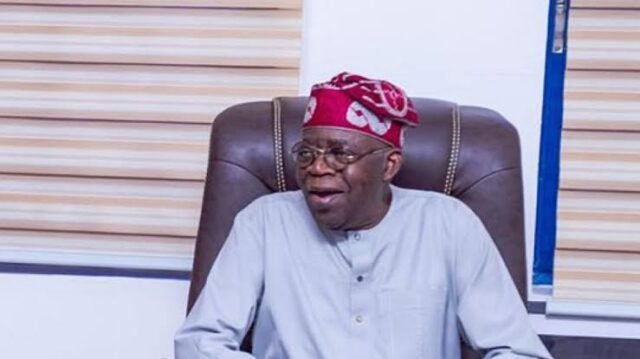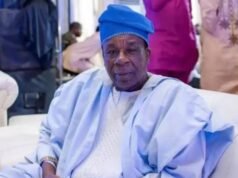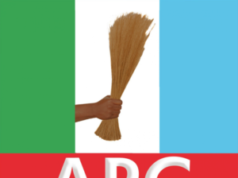Now that President Bola Ahmed Tinubu has deemed it necessary to resuscitate the Nigeria Students Loan Board, it is also imperative his administration looks for the possibility to bring back the defunct Nigeria National Supply Company Limited (NNSC). It was the Military regime of Gen. Yakubu Gowon that established it in 1972 to address the challenges of inflation, food supply and distribution artificially created by middlemen shortly after the civil war.
The NNSC, which was under the supervision of Federal Ministry of Trade, became more prominent during the administration of President Shehu Shagari between 1979 and 1983 when it imported and branded essential products which were made available to the generality of the citizenry. Although the NNSC served the purpose it was created, it got scrapped, in early 1984, almost immediately the military regime of Buhari/Idiagbon came on board after serious corruption and abuse of office were discovered in the company. Before it was disbanded, the company distributed almost all the ‘essential products’ through theirwarehouses and stores across the then 19 states of the federation without the input of shylock middlemen and this offered immeasurable succor to consumers who did not only buy products in their original brand but also got them at reasonable prices. Some of the products categorized as essential products then were rice, milk, sugar, beverages, corned beef, oats, medicines, beans, stock-fish, dried fish, cooking oil, cement and so on. The situation in Nigeria today deserves the same treatment if not more.
The major responsibilities of NNSC then was to do bulk purchase and import essential products in large quantities direct from the foreign manufacturers and distribute to local consumers at reasonable rates and thus eradicate inflation of prices by middlemen and mean importers of goods. In today’s Nigeria, the economic hardship is caused by both shortages of food production as well as distribution problems caused by middlemen who make outrageous profits from their transactions with hapless customers and consumers. In short, the NNSC then was a profit oriented limited liability company with a human face.
Regrettably, the ignoble roles being played by middlemen in the supply and distribution of cement as narrated by Mr. Abdussamad Rabiu, an Executive Director at BUA Cement Company on March 5, 2024 is something that cannot be waved aside. During an Interview conducted by the Leadership newspaper on the reason why BUA did not make good its promise to reduce the unit price of a 50kg bag of cement to N3,500 by the start of this year, Rabiu said; “We actually sold our cement for three to four months at N3, 500. We thought other players in the cement industry would join us in making the price of cement affordable but this did not happen.”
Needless to say that BUA hiked the price again after her competitors and even her distributors refused to drop prices when she did. This is just a tip of the iceberg of what happens along our distribution chains in Nigeria. In September 2023, Abdul Samad Rabiu, chairman of BUA Cement, asserted that ‘80% of the raw materials used in cement production are sourced locally and he pledged that his company would consider the plight of citizens and bring down the cost of a 50kg bag of cement to between N3, 000 and N3, 500. The businessman was quoted to have said that ex-factory cost of a 50 kg bag of cement was less than N3, 500 at a time the bag was selling for N5, 500. It was even rumored at the time that cement manufactured in Nigeria and shipped to our neighbouring countries were selling at a price lower than how much it was sold at home because of the intervention from the government of those countries.
In a Facebook post of March 12th, 2024, Engr. Joe Igbokwe lamented what he called callousness on the part of Nigerians against their fellow country people. He wrote; ‘This is Wickedness Not Business as he shared a Facebook post narration by one Mr EgbunikeOnuoha how he bought a bag of pure water that was produced in Lagos at the rate of N260 for N1,150 in the same Lagos. The retailer here made a profit of N890 on an investment of N260. This kind of business transaction, according to Igbokwe, is not ideal and must be do away with anywhere in the world. It is better called round tripping of the masses just like what some banking executives have been accused of doing. It is the same story along the distribution channels. Hence, people prefer working in trading than actual production.
In accordance with the theory postulated by Adam smith many years ago, the present government wants price mechanism to determine the demand and supply of everything. But in the case of Nigeria, the recent ugly experience of the people on the corrupt practices associated with the payment of subsidy on fuel imports and the crisis which ensued upon its removal by the present administration tells it all. The evil hands of shylock marketers and distributors (as exposed in the two examples above) coupled with their oligarchy tendencies will frustrate the price mechanism in the commodity markets. Besides, every country needs certain degree of government intervention, to regulate market activities particularly as this concerns price mechanism, for economic stability and wellbeing of the people across board.
The impact of current efforts of the federal government to alleviate the pains of the people through provision of funds and food items through the state governors, Senators and members of the House of Representatives have not been felt by the people. Now that the government is looking towards reorganizing and reinvigoration the activities of the Ministry of Humanitarian Affairs, it will be better to shed some of the activities of the ministry to a revived NNSC. It will also be better to transfer palliatives being currently route through the political office holders to NNSC to sell food and other essentials at affordable and yet economic prices to the people than to continue to spoon-feed them through handouts. This can be achieved by having the renewed NNSC warehouses in every local government or at least every federal constituency.
Chief Akinyemi Akinlabi
Igboora, Oyo State
Yemak01@aol.com


